Year 1
How my world is different from the past and can change in the future
The Year 1 curriculum provides a study of the recent past, the present and the near future within the context of the student's own world. Students are given opportunities to explore how changes occur over time in relation to themselves, their own families, and the places they and others belong to. They examine their daily family life and how it is the same as and different to previous generations. They investigate their place and other places, their natural, managed and constructed features, and the activities located in them. They explore daily and seasonal weather patterns and how different groups describe them. They anticipate near future events such as personal milestones and seasons. The idea of active citizenship is introduced as students explore family roles and responsibilities and ways people care for places.
The content provides opportunities for students to develop humanities and social sciences understanding through key concepts including significance; continuity and change; place and space; roles, rights and responsibilities; and perspectives and action. These concepts may provide a focus for inquiries and be investigated across sub-strands or within a particular sub-strand context.
The content at this year level is organised into two strands: knowledge and understanding, and inquiry and skills. The knowledge and understanding strand draws from two sub-strands: history and geography. These strands (knowledge and understanding, and inquiry and skills) are interrelated and have been developed to be taught in an integrated way, which may include integrating with content from the sub-strands and from other learning areas, and in ways that are appropriate to specific local contexts. The order and detail in which they are taught are programming decisions.
Inquiry Questions
A framework for developing students' knowledge, understanding and skills is provided by inquiry questions. The following inquiry questions allow for connections to be made across the sub-strands and may be used or adapted to suit local contexts: inquiry questions are also provided for each sub-strand that may enable connections within the humanities and social sciences learning area or across other learning areas.
- How has family life and the place we live in changed over time?
- What events, activities and places do I care about? Why?
(source: www.australiancurriculum.edu.au)
Achievement Standard
By the end of Year 1, students identify and describe important dates and changes in their own lives. They explain how some aspects of daily life have changed over recent time while others have remained the same. They identify and describe the features of places and their location at a local scale and identify changes to the features of places. They recognise that people describe the features of places differently and describe how places can be cared for.
Students respond to questions about the recent past and familiar and unfamiliar places by collecting and interpreting information and data from observations and from sources provided. They sequence personal and family events in order and represent the location of different places and their features on labelled maps. They reflect on their learning to suggest ways they can care for places. They share stories about the past, and present observations and findings using everyday terms to denote the passing of time and to describe direction and location.
(source: www.australiancurriculum.edu.au)
Achievement Standard
By the end of Year 1, students identify and describe important dates and changes in their own lives. They explain how some aspects of daily life have changed over recent time while others have remained the same.
Students sequence personal and family events in order, using everyday terms about the passing of time. They respond to questions about the past using sources provided. Students relate stories about life in the past, using a range of texts.
(source: www.australiancurriculum.edu.au)
Achievement Standard
By the end of Year 1, students identify and describe the natural, managed and constructed features of places at a local scale and identify where features of places are located. They recognise that people describe the features of places differently. Students identify changes in features and describe how to care for places.
Students respond to questions about familiar and unfamiliar places by locating and interpreting information from sources provided. They represent the location of different places and their features on labelled maps and present findings in a range of texts and use everyday language to describe direction and location. They reflect on their learning to suggest ways that places can be cared for.
(source: www.australiancurriculum.edu.au)
- Plus Plan
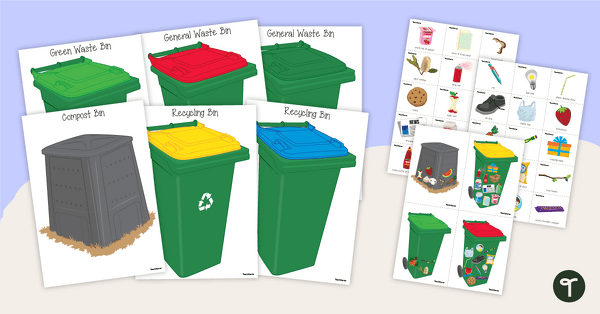
Rubbish Bin Sorting Activity
Learn about recycling, composting, and sustainable practices for waste management with a fun sorting activity.
- Free Plan
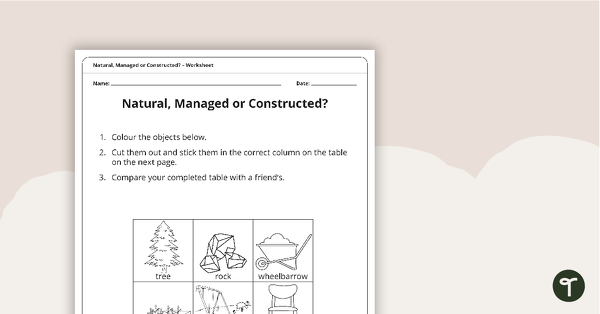
Natural, Managed or Constructed? - Worksheet
A worksheet that explores natural, managed and constructed features.
- Free Plan
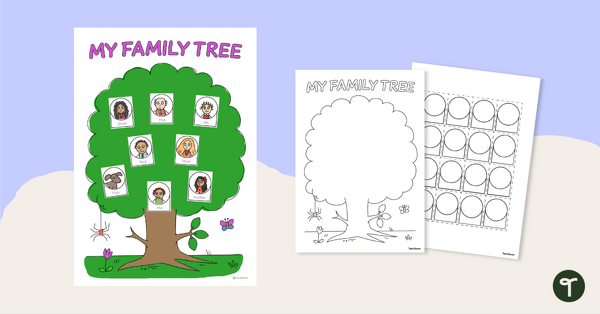
Build a Family Tree – Template
A versatile resource to use when exploring family history with your students.
- Free Plan
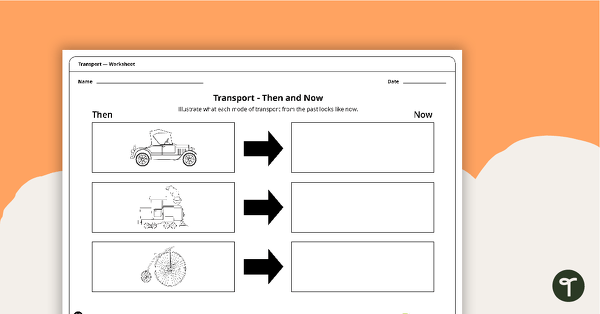
Transport Then and Now - Worksheet
A set of 2 worksheets for students to identify how transport has changed over time.
- Free Plan
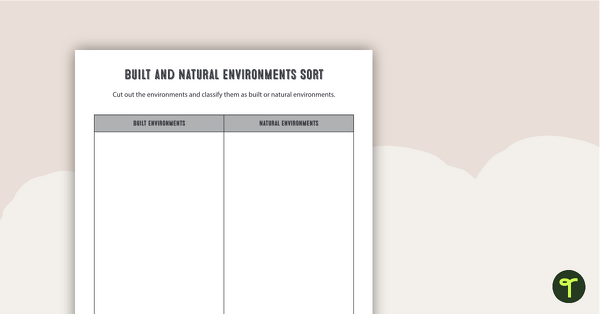
Natural and Built Environments Sort Activity
A natural and built environments sort activity.
- Plus Plan
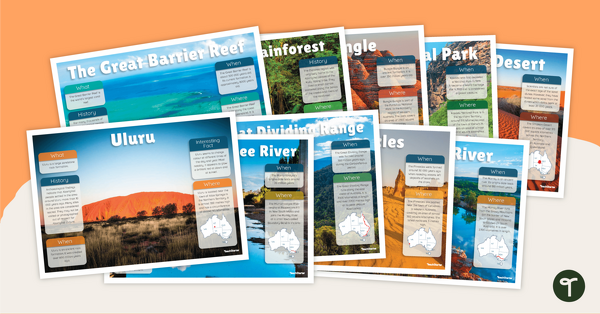
Natural Landmarks of Australia - Poster Pack
10 beautifully designed posters about some of Australia's most famous natural landscapes.
- Free Plan
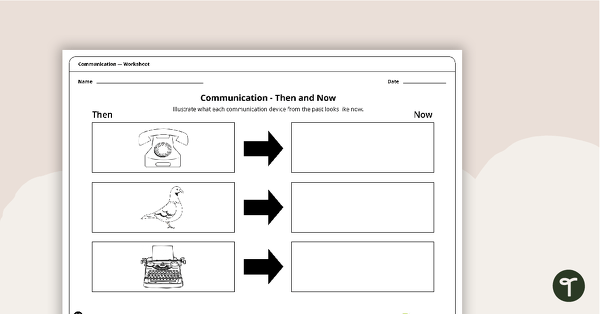
Communication Then and Now - Worksheet
A worksheet for students to illustrate how communication methods and devices have changed over time.
- Plus Plan
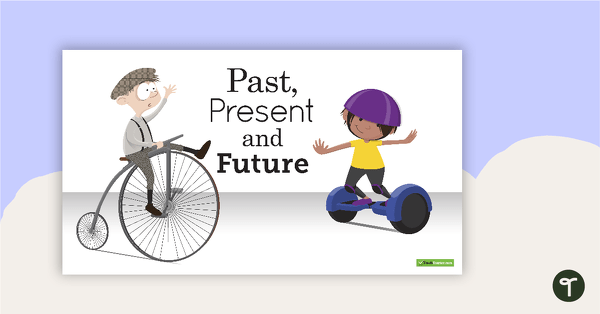
Transport - Past, Present and Future PowerPoint
An 11 slide editable PowerPoint template to use when comparing different modes of transport and their uses from today with the past.
- Plus Plan
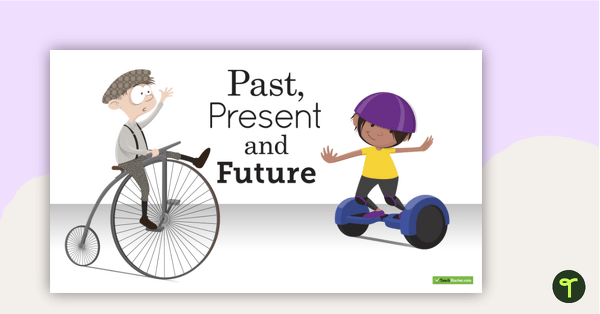
Toys - Past, Present and Future PowerPoint
A 15 slide editable PowerPoint template to use when comparing toys from today with the past.
- Plus Plan
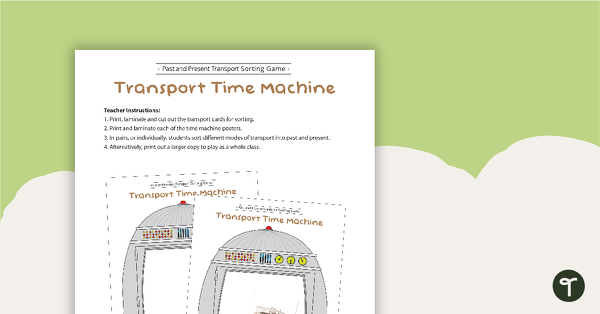
Transport Time Machine - Past and Present Transport Sorting Activity
A fun sorting game for students to identify past modes of transport from the present.
- Plus Plan
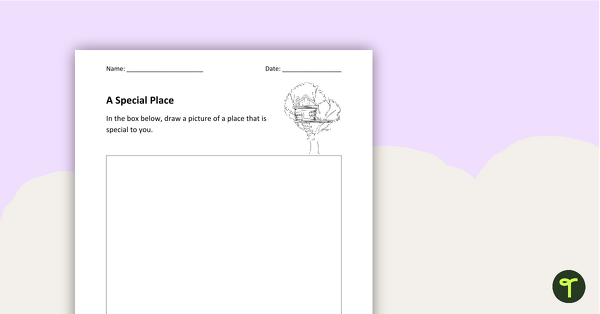
Natural and Built Environments - Special Place Worksheet
A worksheet that requires your students to draw and explain their special place.
- Plus Plan
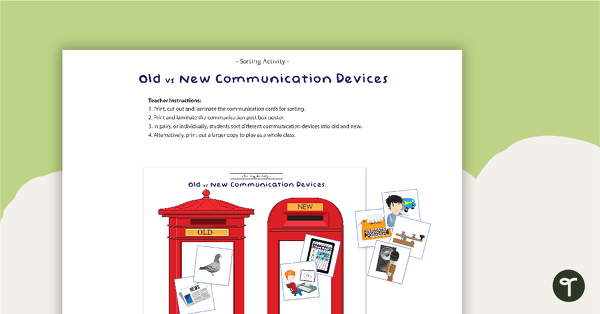
Old vs New Communication Devices - Sorting Activity
A fun sorting activity for students to identify old and new communication devices.
- Plus Plan
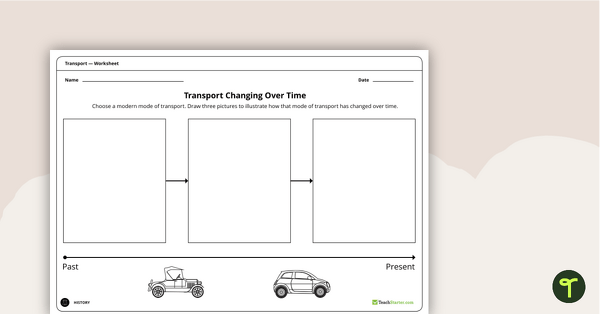
Transport Changing Over Time - Timeline Worksheet
A worksheet for students to illustrate how transport has changed over time.
- Free Plan
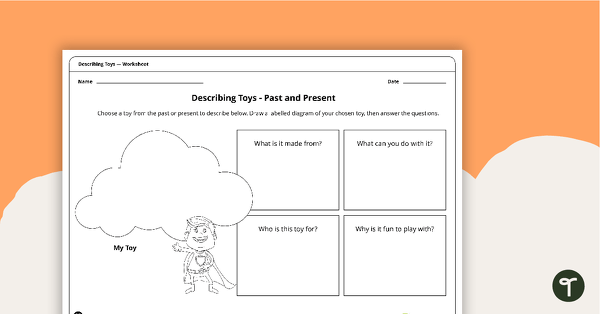
Describing Toys Past and Present - Worksheet
A worksheet for students to describe the features of past and present toys.
- Free Plan
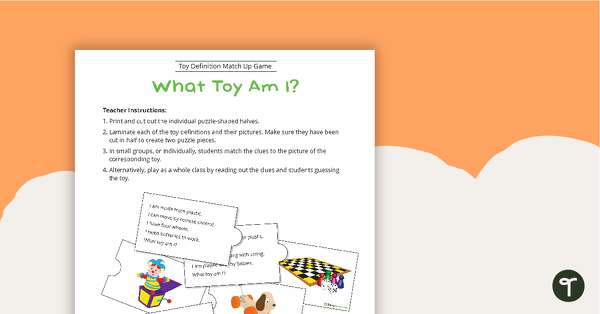
What Toy Am I? - Toy Definition Match Up Game
A set of 20 puzzle cards for students to match pictures of toys to their definition.
- Free Plan
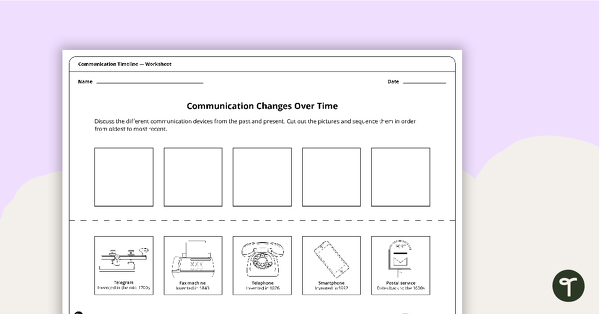
Communication Changes Over Time Worksheet
A sequencing activity to use when exploring how communication devices have changed over time.
- Free Plan
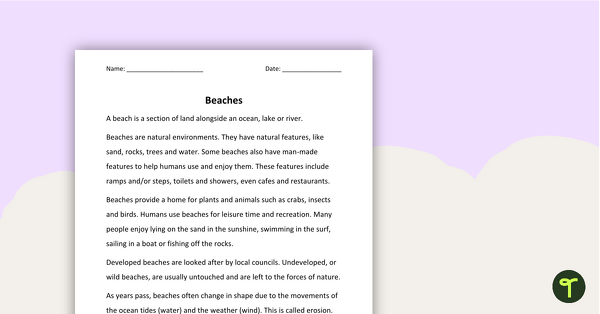
Natural and Built Environments - Information Sheets
A set of information sheets for selected natural and built environments.
- Plus Plan
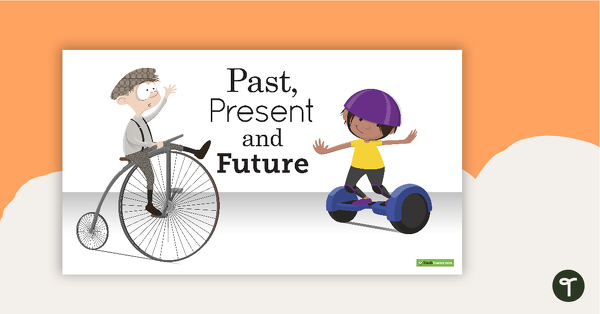
Communication - Past, Present and Future PowerPoint
A 13 slide editable PowerPoint template to use when comparing present day communication devices and their uses with the past.
- Plus Plan
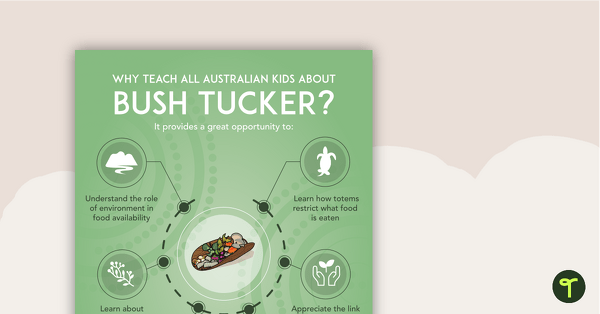
Why Teach About Bush Tucker? Poster
An educational poster providing a rationale for teaching Australian children about bush tucker.
- Plus Plan
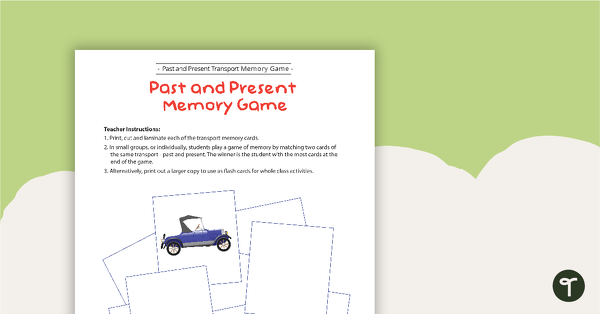
Transport Then and Now - Memory Game
A fun memory game for students to match past and present modes of transport.
- Plus Plan
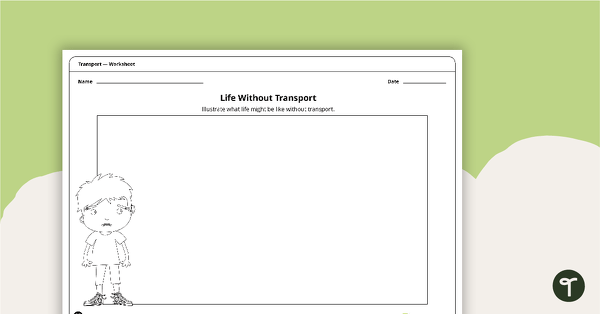
Life Without Transport - Worksheet
A worksheet for students to identify how we use transport in our daily lives.
- Plus Plan
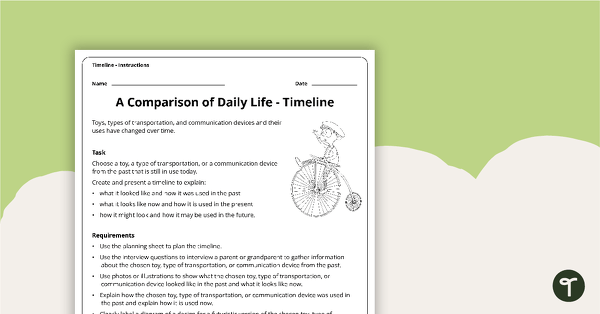
A Comparison of Daily Life - Assessment Task
An open-ended assessment task for students to demonstrate their understanding of how toys, modes of transport and communication devices and their uses have changed over time.
- Plus Plan
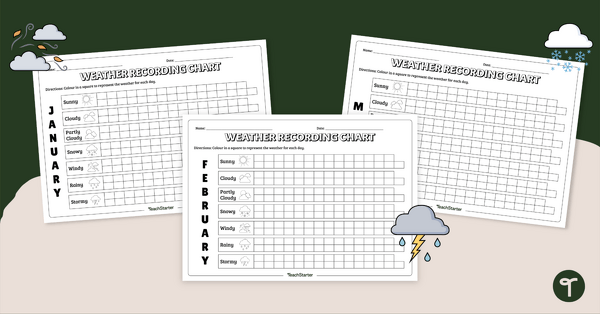
Printable Weather Recording Charts
Use these printable weather charts to graph and analyse the weather for each month.
- Free Plan
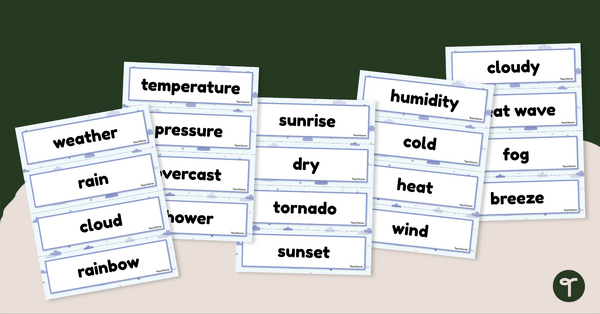
Weather Word Wall Vocabulary
Use this teacher-created weather resource to teach weather vocabulary. Build a weather word wall with your students during your weather lessons.
- Plus Plan
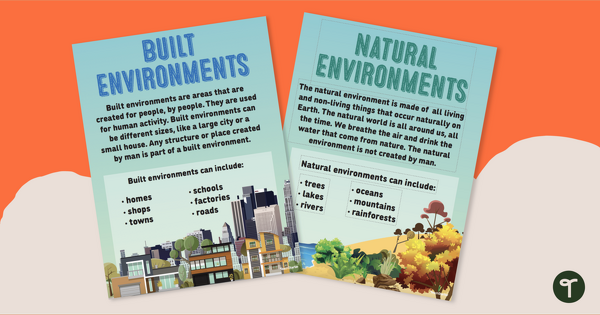
Our Natural and Built Environments - Poster Pack
Poster with definitions and examples of natural and built environments.
- Plus Plan
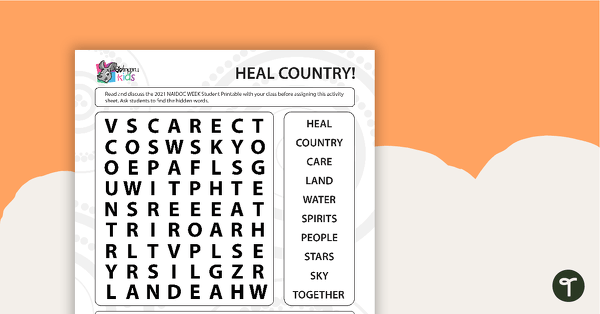
NAIDOC 2021 – Heal Country! - Word Search (Early Years)
A puzzle related to key concepts of the NAIDOC theme.
- Plus Plan
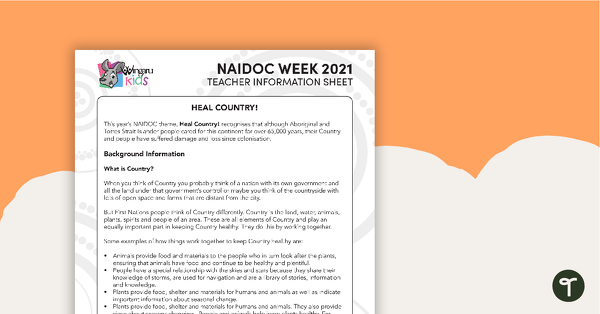
NAIDOC 2021 – Heal Country! Teacher information sheet
A teacher information sheet about the NAIDOC 2021 theme: Heal Country!
- Free Plan
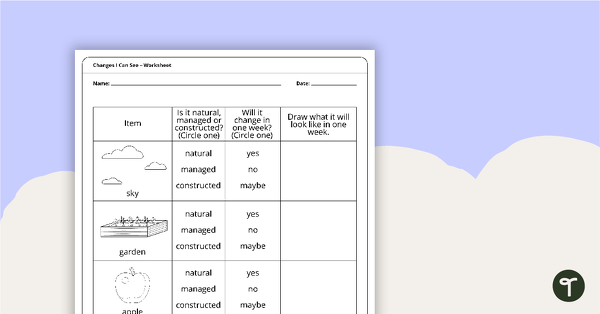
Changes I Can See - Worksheet
A worksheet that explores changes to observable features of the environment.
- Free Plan
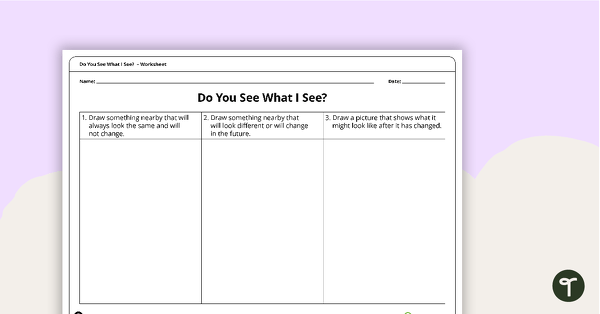
Do You See What I See? - Worksheet
A worksheet that explores how features of a local environment may change.
- Plus Plan
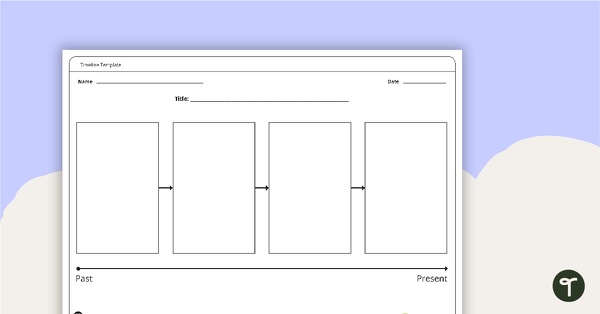
Blank Timeline Template
A blank editable timeline template to use as a recording worksheet in history lessons.
- Plus Plan
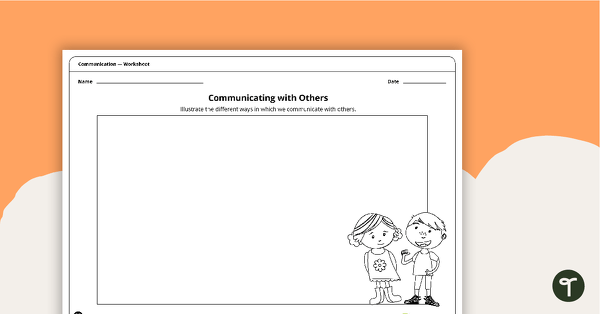
Communicating with Others - Worksheet
A worksheet for students to identify the communication methods and devices we use today.
- Free Plan
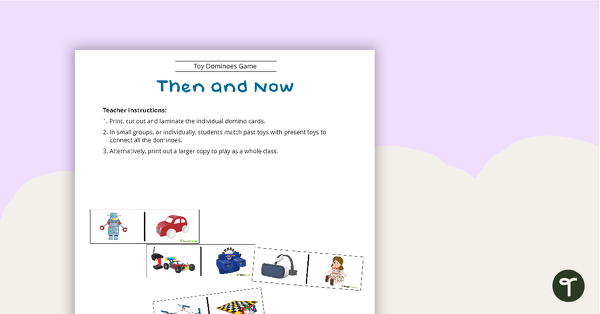
Then and Now - Toy Dominoes
A set of 12 domino playing cards for students to match pictures of toys from the past with the present.